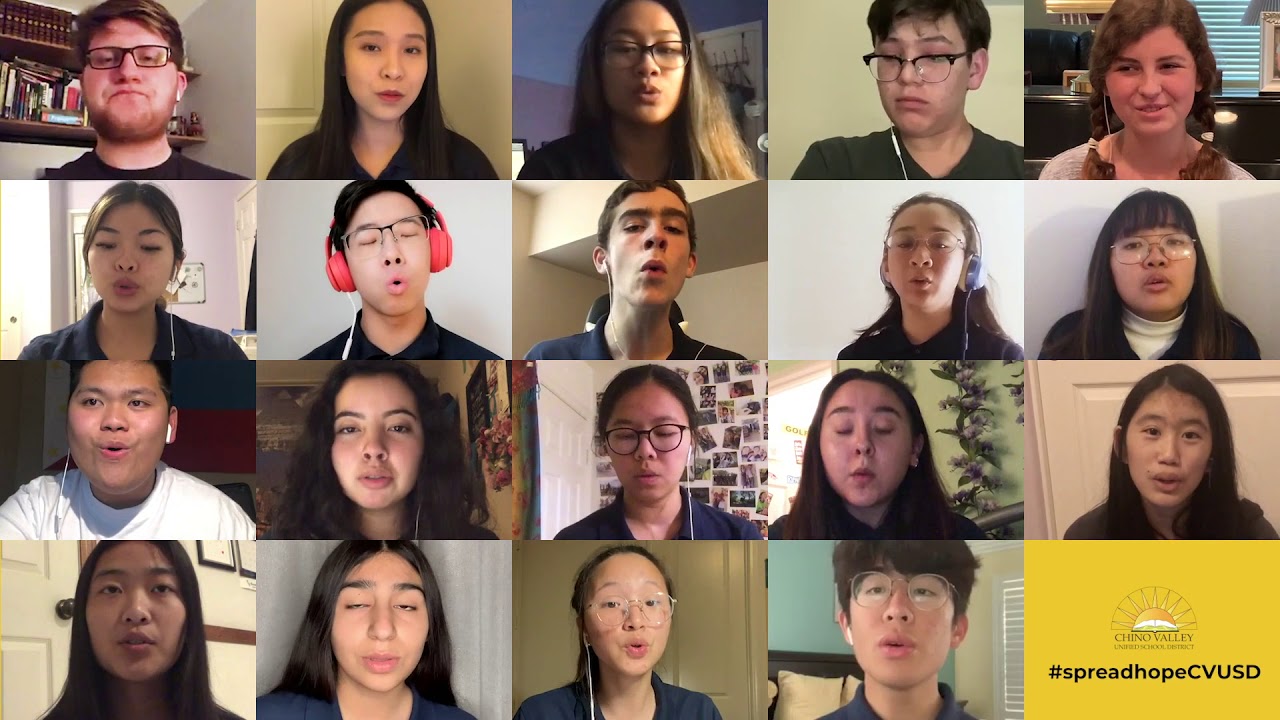The past week as Coronavirus cases and preparations escalated, everyone we know has been navigating fear. Reading worst case projections for the virus, healthcare, food supply, internet stability etc can make for a pretty toxic environment that can impact our immune systems. Part of my daily care routine involves countering that. When I find myself in fear, I remember the love/light/nature-of life-is-to-find-solutions that is always available. Just remembering antidotes fear.
Over the past week, I’ve also been collecting things that, to me, yield a heartening-yet-realistic take of the frightening situation we are experiencing together. Most soothing are these are two videos of singing groups performing remotely together to spread beauty into the world: the remotely-recorded performance of “Over the Rainbow” by the Chino Hills High School Chamber Singers and They are wonderful examples of new forms being found to “convene” from a distance.
…
In Wired’s “The Doctor Who Helped Defeat Smallpox Explains What’s Coming”, epidemiologist Larry Brilliant, who warned of pandemic in 2006, tells how we CAN beat the novel coronavirus. By taking measures to slow the disease down, spread it out over time until we start to create herd immunity —having a large enough quantity of people who have caught the disease and become immune and develop a vaccine — we will manage and defeat it, as we have with many other viruses.
…There’s nothing in the virology that makes me frightened that we won’t get a vaccine in 12 to 18 months
If you’re not worried, you’re not paying attention. But I’m not scared. I firmly believe that the steps that we’re taking will extend the time that it takes for the virus to make the rounds. I think that, in turn, will increase the likelihood that we will have a vaccine or we will have a prophylactic antiviral in time to cut off, reduce, or truncate the spread. Everybody needs to remember: This is not a zombie apocalypse. It’s not a mass extinction event.
…
Vox illustrates Brilliant’s thinking in their chart showing How canceled events and self-quarantines save lives.
Its simple graphic shows how we all help slow the spread of coronavirus. The South Korea Foreign Minister explained how her country did it: efficient testing, efficient tracing, travel bans, efficient isolating and efficient quarantining. We can too.
A disastrous inundation of hospitals can likely be averted with protective measures we’re now seeing more of — closing schools, canceling mass gatherings, working from home, self-quarantine, self-isolation, avoiding crowds — to keep the virus from spreading fast.
Epidemiologists call this strategy of preventing a huge spike in cases “flattening the curve,” and it looks like this:
:no_upscale()/cdn.vox-cdn.com/uploads/chorus_asset/file/19780273/flattening_the_curve_final.jpg)
…
Watching this real-life illustration of how germs spread and virus transmission happens by a former NASA engineer made me understand just what I need to do to clean and disinfect. It’s yechy but hugely helpful.
Rober calls your eyes, nose, and mouth “the single weak spot on the Death Star when it comes to viruses. That’s the only way they can get in to infect you.” Hence, here in the time of COVID-19, the frequent urgings not just to wash our hands but to refrain from touching our faces as well.
…
To ease the great anxiety the world is experiencing, artists of the International Opera Choir sang together from virtual rehearsal rooms. Listen to Giusseppe Verde’s lovely “Va Pensiero”…




